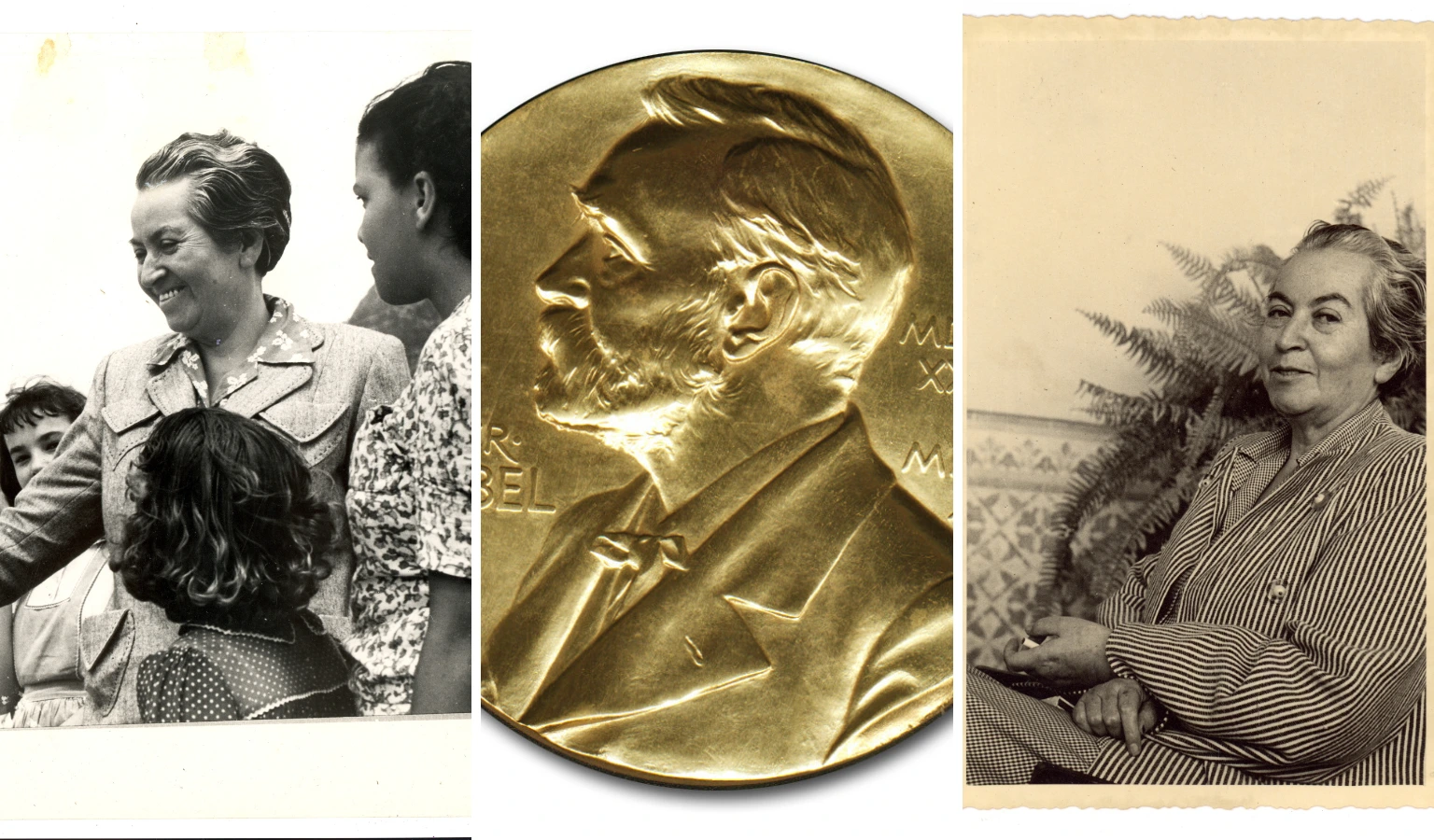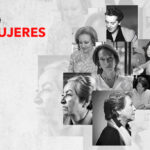
Lucila de María Godoy Alcayaga, better known as Gabriela Mistral, transcended the frontiers of literature to become a relevant figure in the cultural and social history of Latin America. Her poetic work, recognized with the Nobel Prize in 1945, consolidated her as one of the most influential voices of the 20th century. But her legacy goes far beyond literature: as a teacher, diplomat and activist, she worked tirelessly for education, gender equality and children's rights in several countries.
A universal voice for Latin American literature
December 10, 1945, Gabriela Mistral became the first Latin American to receive the Nobel Prize for Literature, awarded by the Swedish Academy for "her lyrical work which, inspired by powerful emotions, has made her name a symbol of the idealistic aspirations of the entire Latin American world".
After the award ceremony, the Chilean expressed in her speech: "For a fortune that surpasses me, I am at this moment the direct voice of the poets of my race and the indirect voice of the very noble Spanish and Portuguese languages. Both are happy to have been invited to the conviviality of Nordic life, all of it assisted by its millenary folklore and poetry".
Within the wide repertoire of her works, we can highlight, for example, "Desolación" (1922), her first great book that catapulted her as a referent of Latin American poetry. Later, she wrote "Ternura" (1924), where she dealt with themes of maternal love and children's poetry. Finally, in 1954, she published "Lagar", her last work, which was widely recognized by the literary world. In the latter, he touched on themes of death, religion and personal pain. For many critics, it was the writer's culminating work.
His diplomatic career
Beyond her literary legacy, Gabriela Mistral played a key role in Chilean diplomacy, being the first woman to hold the position of consul in countries such as Brazil, Spain, Portugal and Italy.
In each of these trips, he managed to combine his work as consul with his passion for literature, actively participating in cultural gatherings and forging friendships with various contemporary writers, including the Venezuelan Rómulo Gallegos and Teresa de la Parra, the Mexican Alfonso Reyes, the Argentine Victoria Ocampo, among others.
Her activism led her to participate in various international forums and events, where she advocated for education and the protection of children's rights, being appointed in 1920, as an advisor to the International Institute of Intellectual Cooperation, an organization of the League of Nations.
Years as a teacher
Although the writer did not have professional training as a teacher, Mistral was characterized by her innovative educational approach, standing out for motivating students with her warmth and sensitivity. Many of her methods sought to transmit human values, promote critical thinking and develop a deep connection with literature and nature.
Without going any further, she was hired by the Mexican Minister of Education in 1922, José Vasconcelos, to shape a new educational system that would focus on the development of rural areas. Both she and her close sources indicated that this was one of her most significant tasks during her lifetime.
In this way, Gabriela Mistral managed to combine her talent in literature with an exceptional career in the diplomatic field, which allowed her to promote and strengthen Chile's image in the world, even to this day.
Chile celebrates Gabriela
This April 7, in the framework of his 136th birthday, the activities to commemorate the 80th anniversary of the Nobel Prize officially begin. This celebration invites citizens to honor his legacy in all its dimensions: his literary work, his impact on Latin American education, his struggle for equity and human rights, as well as his most human and political facet.
To this end, a cross-cutting advisory committee was formed with representatives from various sectors, reaffirming the relevance of her figure. The Ministry of Cultures highlights this commemoration as an opportunity to revitalize his presence in the cultural life of the country and invites to add activities in www.gabrielamistral80.cl, where you can also find archival material, videos and virtual tours.






